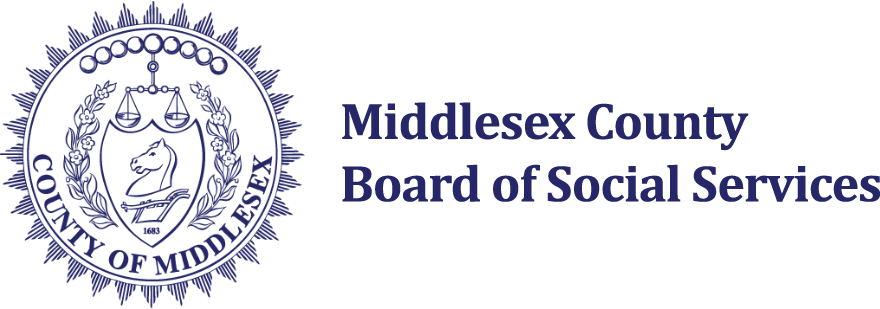History
Origin and Development of the Middlesex County Board of Social Services and Its Programs
New Jersey passed the “Old Age Relief Act” (now Chapter 7, Title 44 of the Revised Statutes) approved April 24, 1931 and effective January 2, 1932. This Act made it mandatory upon the counties to establish county welfare boards.
Since 1932, and especially with the enactment of the federal Social Security Act of 1935, the scope of services overseen by and the responsibilities of the Welfare Boards have increased dramatically. They now administer, within the geographic area of the county, the programs of Work First NJ Temporary Assistance to Needy Families and General Assistance, SNAP (Food Stamp program), NJ Family Care (Medicaid), Housing, and other programs.
Development and Nature of Assistance Programs
Initially, County Welfare Agencies were created to administer programs dealing with Assistance for the Aged. However, the scope of services overseen by Welfare Boards increased dramatically with the enactment of the Federal Social Security Act, approved on August 14, 1935, provided for federal financial participation in three categorical assistance programs then in effect in many states, as authorized and administered under state laws. The three programs were: Old Age Assistance, Aid to Dependent Children, and Aid to the Blind. In 1950 Aid to the Permanently and Totally Blind was added, and in 1960, Medical Assistance for the Aged was added.
Over the years, programs have changed in name, breadth, and depth, and programs have been added.
Medical Assistance Programs
The New Jersey Legislature enacted the New Jersey Medical Assistance and Health Services Act in 1968. The Medicaid Program is overseen by the Division of Medical Assistance and Health Services (DMAHS) within the New Jersey Department of Human Services. The Middlesex County Board of Social Services administers the Medicaid Program within its geographic borders.
Now called NJ FamilyCare Medicaid, which includes Medicaid for the Aged, Blind and Disabled, the programs provide health insurance for Middlesex County residents in a variety of living arrangements including assisted living facilities and long-term care centers. Income and/or asset limits apply to eligibility depending upon what level of care is required by the applicant.
Supplemental Nutrition Assistance Program (SNAP) Food Stamp Program
The Food Stamp Program was established in 1939 as a way to build a bridge between farmers who had surplus produce and dairy products and the vast numbers of unemployed and under-nourished people living in the United States at the time. On October 1, 2008, after several iterations, the federal Food Stamp program was renamed the Supplemental Nutrition Assistance Program (SNAP). It remains under the administration of the U.S. Department of Agriculture (USDA). The program’s focus shifted to increase the food purchasing power of eligible households and improve the nutritional adequacy of the diets of low-income families. The amount of benefits an eligible household receives depends on the number of people in the household and the amount of income the household has.
Work First New Jersey
Work First New Jersey (WFNJ) is the State’s welfare reform program. WFNJ emphasizes work as the first step toward becoming self-sufficient and building a better, more secure life. The program was created by the Legislature in 1997 after Congress enacted the Federal Personal Responsibility and Work Opportunity Act of 1996 (PRWORA). In part, PRWORA established the Temporary Assistance for Needy Families (TANF) block grant program.
WFNJ’s purpose is to require all able-bodied recipients to seek gainful employment, and achieve self-sufficiency. WFNJ has two segments: the Temporary Assistance for Needy Families component, which encompasses families with dependent children; and General Assistance, which encompasses single adults and couples without dependent children. Both components are time-limited and considered a temporary cash subsidy to bridge the gap while individuals seek gainful employment and become self-sufficient.
Housing: Emergency Assistance Services
Homeless clients eligible for Work First New Jersey General Assistance (WFNJ GA), Temporary Assistance for Needy Families (WFNJ TANF), or Supplemental Security Income (SSI) may be assisted with shelter and emergency services. Services may include the payment of overdue rent or mortgage, utility payments, or placement in temporary shelter.
Board and Care Services
The Services Department monitors and responds to complaints for 54 Rooming Houses, three Boarding Houses, and two Residential Health Care Facilities (RCHF). Rooming houses, boarding homes, and free-standing residential health care facilities are licensed by the New Jersey Department of Community Affairs. The State of New Jersey has charged the County Welfare Agency with responsibilities for ensuring the facilities are in compliance with State regulations.
Child Support and Paternity Program
The purpose of this program is to locate non-custodial parents, establish paternity, and establish and enforce support obligations. This includes medical support owed by non-custodial parents to their children and the spouse, or former spouse, with whom the children may reside. The program provides services to both public assistance and non-public assistance clients, including families who are receiving or formerly received assistance under the Temporary Assistance for Needy Families (TANF), Foster Care, and Medicaid programs, as well as any other families who apply for services.
Investigative Department
The Investigative Department is responsible for maintaining program integrity in all eligibility programs offered by the Middlesex County Board of Social Services. All charges of fraudulent activity are investigated.
